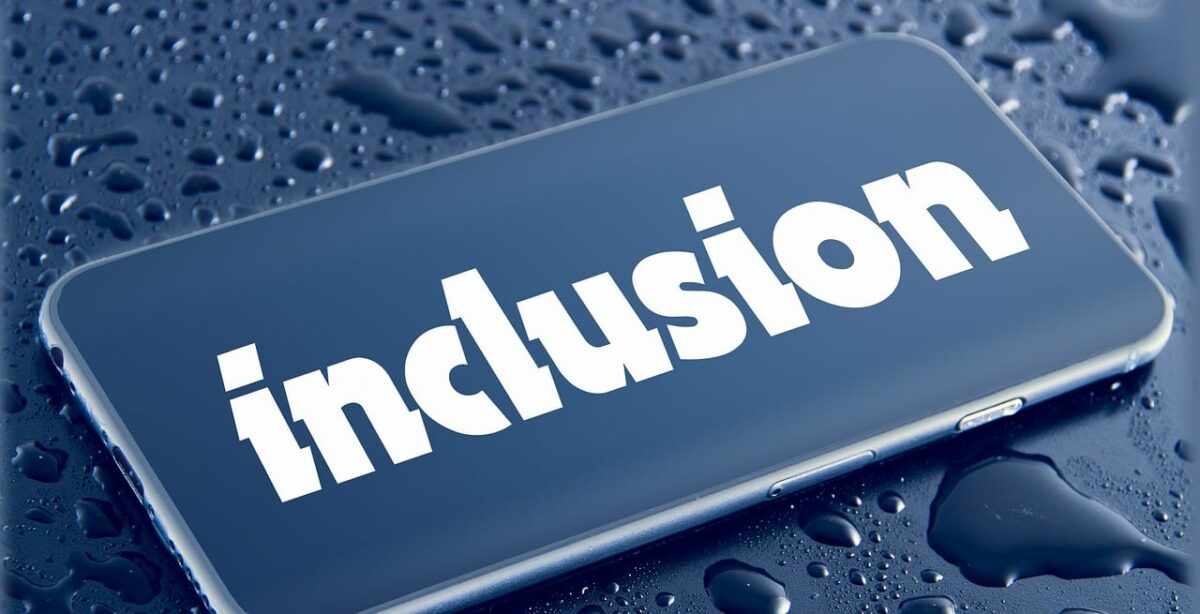Should You Include Work Ethic In A Job Description?

In the ever-evolving landscape of talent acquisition, the art of crafting a compelling job description is key to attracting the right candidates. One perennial question that employers grapple with is whether to spotlight ‘good work ethic’ as a core requirement. This blog delves into the nuanced debate surrounding the inclusion of work ethic in job descriptions, examining its potential to both attract dedicated professionals and inadvertently narrow the talent pool. We’ll explore the essence of a good work ethic, weigh its significance against practical skills and experience, and consider how it can be effectively integrated into the recruitment process. Whether you’re a seasoned Hiring Manager or a start-up founder building your dream team, join us as we navigate the merits and considerations of articulating work ethic in your next job advertisement.
Quick Links:
- Work Ethic Meaning: Work Ethic Definition
- The Value Of Work Ethic
- Understanding The Candidate’s Perspective
- The Case For Including Work Ethic In Job Descriptions
- The Case Against Including Work Ethic
- Balancing The Job Description: Example Job Descriptions Including Work Ethic Skills
- Legal And Ethical Considerations
- Implementing Work Ethic In The Recruitment Process
- Positive Work Ethic FAQs
Highlights And Key Takeaways:
- Strong work ethic is a set of values and positive behaviours that employers seek in new employees.
- Work ethics in job descriptions affects the nature of your candidate talent pool and company culture.
- You can integrate work ethics into other areas of your recruitment process, including interview questions, assessment tasks, reference checks, and behavioural metrics.
Work Ethic Meaning: Work Ethic Definition

Understanding what constitutes a work ethic is pivotal when considering its place in a job description. At its core, a work ethic encompasses a set of values and positive behaviours that employees bring to their professional endeavours. This skill set, deeply interwoven with one’s character, manifests as a positive attitude and a strong work ethic, invariably ranking as one of the most sought-after qualities by employers across the UK.
Examples of work ethic include:
- Positive Attitude: A good attitude towards challenges and feedback, characterised by a positive outlook, is essential. It encourages a harmonious workplace and leads to high quality work.
- Time Management Skills: Efficient time management is a tangible reflection of responsibility and professionalism. Employees with good time management skills prioritise tasks effectively and often produce superior work within deadlines.
- Self Improvement: The drive for self-improvement is a key part of a strong work ethic. Individuals who are highly motivated to enhance their skills and knowledge show dedication beyond their immediate job role.
- Going the Extra Mile: Employees who are willing to go beyond their job description, taking on additional responsibilities, exemplify a strong work ethic. Their readiness to contribute more significantly sets a precedent for excellence.
- Decision Making: Sound decision-making skills signal a mature work ethic. Professionalism in this regard is seen when employees take accountability for their choices and the consequences thereof.
Incorporating these elements into one’s professional life not only contributes to individual success but also elevates the collective output of the team. When an employee embodies a strong work ethic, it shines through in their commitment to delivering quality work, taking ownership of their tasks, and continuously seeking ways to exceed the standard benchmarks of their role.
The Value Of Work Ethic

Defining work ethic is to understand its significance in the workplace. A solid work ethic is a commitment to professionalism that encompasses several key behaviours and attitudes, from meeting deadlines to the quality of the work produced. It’s the driving force behind an individual’s ability to complete tasks efficiently and contribute positively within a team setting.
In the context of group projects, a solid work ethic means every member pulls their weight, dedicating themselves to the collective goal. This shared commitment ensures that tasks are not just completed, but executed with a level of excellence that drives increased productivity. Moreover, individuals who embody this ethos are often the ones who ensure that the work environment is conducive to success, fostering a culture where meeting deadlines is the norm, not the exception.
The ripple effect of a strong work ethic can be profound. When team members use their time effectively, it translates to enhanced performance in important meetings, project deliveries, and daily operations. This approach reinforces a company culture that values diligence, reliability, and a proactive mindset, all of which have a positive impact on the bottom line. Find out more about developing a company culture in a short blog – 5 Different Corporate Cultures.
Ultimately, the collective work ethic of employees shapes the identity and success of a company. It’s the bedrock upon which reputations are built and on which the most successful businesses stand. When a company is comprised of individuals who consistently demonstrate a strong work ethic, it sets the stage for a thriving, resilient, and dynamic work environment, propelling the company towards its goals.
Understanding The Candidate’s Perspective

The inclusion of ‘work ethic’ in job descriptions can be a beacon for potential candidates, signifying the kind of professional success and team culture an employer prioritises. For those who pride themselves on being diligent team members, it’s an invitation to join an environment where their efforts and responsibility are valued and recognised.
Candidates often interpret the emphasis on work ethic as a signal that a company values not just the skills but also the character of their employees. It suggests that to be a valuable employee, one must align with the company’s dedication to excellence and its policies. This understanding can attract applicants who are not only skilled but also motivated to uphold these standards, thereby enhancing the quality of the application pool.
Hiring Managers may notice that job descriptions highlighting work ethic tend to draw individuals who are ready to commit, individuals who see themselves as future team players invested in contributing to the company’s mission. This can be a double-edged sword; while it may deter those who are less confident in their work ethic, it also ensures that those who do apply are more likely to carry the traits of a strong team member – reliability, accountability, and a willingness to embrace company policies.
In essence, when candidates see a strong emphasis on work ethic in a job description, it sets clear expectations from the outset. It communicates that the employer values a proactive attitude and personal responsibility, which can be a powerful motivator for like-minded professionals to apply, thereby potentially raising the calibre of candidates and ensuring a good fit for the company culture. Find out how to build a talent pool in Creating A Talent Pool, part of our Small Business Guide For Cost Effective Recruitment.
The Case For Including Work Ethic In Job Descriptions

Highlighting a strong work ethic as a key requirement in job descriptions presents numerous advantages for shaping the workforce and the future trajectory of a company. It acts as a beacon, attracting individuals who not only have the requisite skills but also the personal drive that aligns with a company’s ethos – a trait that is highly valued in today’s competitive work environment.
Emphasising work ethics in a job description sets a precedent for what is expected of employees, establishing it as an essential part of the company culture. It communicates that the organisation values employees who are willing to put in the extra effort, meet deadlines consistently, and show dedication to their roles. This is not just about getting the job done, but about contributing to a dynamic and cohesive work environment where everyone is driven by a common purpose.
Moreover, a strong work ethic is often linked to career advancement and successful career development within a company. By placing it at the forefront of a job description, employers can signal their commitment to fostering growth opportunities for individuals who show initiative and a capacity to exceed expectations. This can inspire potential candidates who are career-oriented and looking to invest their talents in a company that recognises and rewards hard work and dedication.
Ultimately, including work ethic as a core requirement acts as a self-selecting mechanism for candidates, ensuring those who apply are those who resonate most with the company’s values. It lays the foundation for a workforce characterised by tenacity and ambition, qualities that are indispensable for both individual and collective success.
The Case Against Including Work Ethic

While a strong work ethic is a coveted attribute in any employee, explicitly requiring it in job descriptions can come with its own set of complications. A primary concern is the inadvertent deterrence of promising candidates who might underestimate their own work ethic. These individuals may hesitate to apply because they are unsure if their definition of going above and beyond aligns with the expectations of the employer, or they may feel intimidated by what could be perceived as a high-pressure work environment.
Furthermore, work ethics are inherently subjective and can vary greatly in interpretation. What one employer considers a strong work ethic, another might see as the bare minimum. This ambiguity can make it challenging for candidates to self-assess whether they meet the criteria, and for employers to measure it consistently among applicants. The intangible nature of work ethic means it does not lend itself easily to objective assessment or comparison, unlike technical skills or professional qualifications. If you are adding technical skills and professional qualifications to your job description or job advert, read What Skills Should I Include In A Job Description? and What Qualification Should I Include In A Job Description?
The emphasis on a strong work ethic may also lead to a homogenous workforce, where diversity of working styles and thought processes is inadvertently stifled. Candidates who could offer unique perspectives and contribute to the company in meaningful ways might be overlooked simply because they don’t fit the conventional mould of what is perceived as a strong work ethic.
In sum, while a strong work ethic is undoubtedly beneficial, mandating it in job descriptions can limit the pool of applicants and introduce challenges in fair and accurate assessment of candidates. It may also raise questions about work-life balance and the expectations placed on employees to consistently go above and beyond, potentially leading to burnout and turnover.
Balancing The Job Description: Example Job Descriptions Including Work Ethic Skills
When integrating work ethic into job descriptions, the key is to ensure it complements rather than overshadows the required skills and experience. The language used should be specific, tying the elements of work ethic directly to the responsibilities and expectations of the role.
For example, instead of making broad statements like “must have a strong work ethic,” it is more effective to describe the behaviours that demonstrate work ethic. Use phrases like “demonstrates a proactive approach,” “commits to meeting project timelines with excellence,” or “upholds high standards of professional integrity.”
Example Job Descriptions Including Work Ethic Skills:
Cabin Crew:
Seeking a dedicated Cabin Crew member who thrives in a dynamic environment and prides themselves on delivering first-class service with a smile. Ideal candidates will have a history of punctuality, display meticulous attention to detail, and possess the stamina to maintain high energy levels during long flights. A commitment to safety procedures and a willingness to support fellow team members are essential.
View a complete Cabin Crew job description example.
Office Administrator:
We are looking for an Office Administrator with exceptional organisational skills and a proven track record of maintaining office operations with a positive demeanour. The ability to prioritise tasks effectively, manage time efficiently, and adapt to changing demands is crucial. A sense of ownership and a proactive attitude towards daily challenges are highly valued.
View a complete Office Administrator job description example.
Business Analyst:
The successful Business Analyst candidate will be adept at translating complex data into actionable insights and have a history of driving project delivery through analytical excellence. An inherent willingness to delve deep into data, coupled with the responsibility to validate and communicate findings effectively, is expected. Professionalism in meeting deadlines and a collaborative approach to problem-solving are required.
View a complete Business Analyst job description example.
General Manager:
We require a General Manager who exemplifies leadership through a hands-on approach and a steadfast commitment to achieving business objectives. The role demands strategic decision-making grounded in integrity, the foresight to anticipate market shifts, and the resilience to lead by example, including taking on additional responsibilities to guide the company toward success. A record of fostering a positive work environment and championing company culture is paramount.
View a complete General Manager job description example.
By weaving work ethic attributes into the fabric of the job responsibilities, employers can illustrate the importance of these traits without making them the sole focus. This approach highlights the synergy between a candidate’s work ethic and their professional capabilities, offering a holistic view of what is expected in the role.
Legal And Ethical Considerations
When drafting job descriptions, it is imperative that employers use non-discriminatory language to ensure fair representation and adherence to legal standards. The emphasis on work ethics and responsibility must be presented in a manner that does not inadvertently exclude protected groups under UK employment law.
In the UK, the Equality Act 2010 provides a clear legal framework to prevent discrimination in the workplace. This encompasses job advertisements, which must not imply any preference for characteristics that are not job-related, such as age, gender, race, disability, sexual orientation, religion, or belief. Language around work ethics must therefore be carefully considered; it should not imply a bias towards certain demographics who might be perceived to have a different work ethic.
For instance, stating a requirement for a “young, energetic professional” could be seen as discriminatory towards older applicants, whereas specifying the need for an “energetic individual who thrives in a fast-paced environment” focuses on the job requirement without implying an age preference. Similarly, when mentioning responsibility, it is crucial to relate it directly to work tasks to avoid any connotation that might suggest an unfair bias towards certain candidates.
Employers must also avoid setting unrealistic or unnecessary criteria that could indirectly discriminate against certain groups. For example, a requirement to lift heavy weights might discriminate against individuals with disabilities unless it is a genuine and determining requirement of the job that cannot be met with reasonable adjustments.
In summary, job descriptions should be inclusive and focus on the skills and abilities needed to perform the job effectively. Employers should be vigilant in their wording to promote a diverse and inclusive workforce, where the emphasis on work ethics and responsibility is framed within the context of the role and not personal characteristics. For further advice on the topic of preventing discrimination in job advertisements, read Are You Ever Allowed To Discriminate In A Job Advert? and Recruitment Advice: What You Can’t Ask For In A Job Description.
Implementing Work Ethic In The Recruitment Process

To effectively assess work ethic without making it the focal point of a job description, employers can incorporate it into different stages of the recruitment process. Here are some strategies for integrating an evaluation of work ethic seamlessly:
- Interview Questions: During interviews, ask candidates to describe situations where they had to demonstrate their work ethic. Questions could include: “Can you give an example of a time when you went above and beyond for a project?” or “How do you manage tight deadlines?” These questions invite candidates to provide concrete examples of their work ethic in action.
- Assessment Tasks: Design practical tasks or simulations that mirror actual job challenges, observing how candidates prioritise tasks, manage their time, and respond to feedback. Such tasks can reveal much about a candidate’s commitment and professionalism.
- Reference Checks: Previous employers are valuable sources of insight into a candidate’s work ethic. Inquire about the candidate’s reliability, ability to meet deadlines, and how they contributed to team projects in their past roles.
- Behavioural Metrics: During a probationary period, assess new hires against specific behavioural metrics that reflect work ethic, such as punctuality, quality of work, and initiative.
For more in-depth insights and examples on how to approach these conversations, we encourage employers and recruiters to read our blog Job Interview Questions And Example Answers, which provides a comprehensive guide to crafting questions that draw out candid reflections of a candidate’s work ethic, alongside model answers that help benchmark candidate responses.
By strategically embedding the assessment of work ethic across various touch-points in the recruitment process, employers can form a well-rounded view of a candidate’s suitability for the role and their potential contribution to the company culture.
Positive Work Ethic FAQs
Next, we answer your questions on integrating strong work ethics into your job descriptions and hiring process:
WHAT IS A GOOD DESCRIPTION OF WORK ETHIC?
A sterling work ethic is the unwavering commitment to deliver excellence in one’s professional role, embodying punctuality, reliability, and a proactive approach to one’s responsibilities. It’s the silent engine powering career success and organisational growth.
Good work ethic is more than just hard work; it is a symphony of diligence, dedication, and a continuous pursuit of improvement. It represents the fibre of a professional’s character that turns challenges into stepping stones and tasks into accomplishments.
Indeed, work ethic is a cornerstone of integrity. It reflects the truth of one’s character in action – consistency between words and deeds, adherence to workplace norms, and a resolute respect for the shared mission of the organisation.
The essence of work ethic lies in one’s attitude and behaviour towards their work. It is the relentless pursuit of excellence, a principled approach to work that encompasses dependability, commitment, and the quality of one’s output.
Possessing a robust work ethic is akin to a skill, refined over time through conscious effort and reflection. It’s an attribute admired by employers and colleagues alike, marking a person as a valuable asset to any team.



